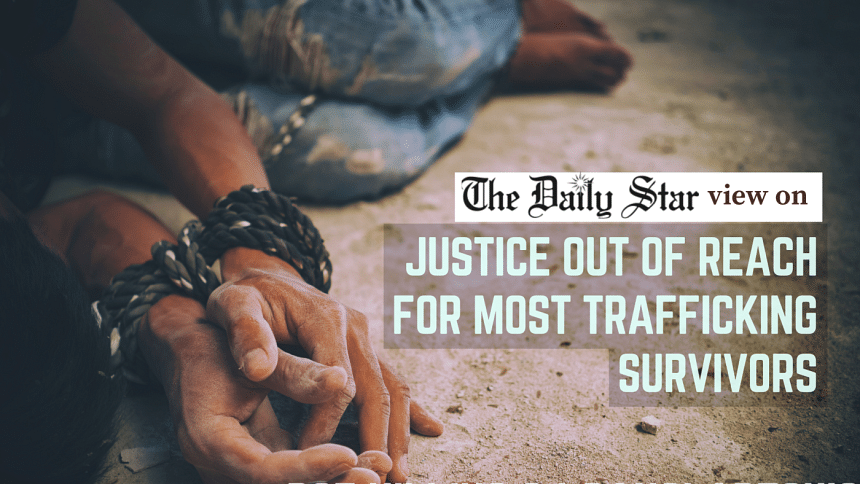Trafficking survivors deserve justice and protection

We are deeply concerned to see how a section of citizens, desperate to secure a better future for their families, are still undertaking perilous journeys to reach Europe. Many, however, only end up being trafficked into Libya, where they are held captive in camps, subjected to extreme forms of violence, and their families extorted for money. Reportedly, for the past three years, Bangladesh has ranked number one among countries whose citizens attempt to enter Europe by crossing the Mediterranean Sea. According to BRAC's migration programme, at least 70,000 Bangladeshis have entered Europe using this route over the past decade. While many are rescued and brought back home after immense hardship, many others remain unrescued, and some lose their lives by drowning in the Mediterranean. Though many survivors have filed cases against the traffickers, these have seldom ended in conviction.
Md Tanjir Sheikh and Md Alamgir Hossain are two such survivors of trafficking who returned from Libya this year—alive but mentally shattered and deep in debt. Both were lured by false promises of work abroad, subjected to inhumane conditions, and held captive for ransom by international trafficking gangs. Although they were eventually able to return home after paying hefty ransoms, many others could not even make it back. While both filed cases against the local brokers responsible for their plight, the overall slow progress of such cases doesn't give them much hope.
According to the Monitoring Cell for Combating Trafficking in Human, a total of 10,917 human trafficking cases were filed between 2009 and January 2025. Of these, 5,467 cases have been resolved, and 5,450 remain pending. Traffickers were arrested in many cases, but most are now out on bail. During this entire period, only 247 cases have resulted in conviction. Experts say this is due to poor coordination among agencies, a lack of dedicated courts, and little protection for witnesses.
There are thousands of survivors like them still waiting for justice. According to the Monitoring Cell for Combating Trafficking in Human, a total of 10,917 human trafficking cases were filed between 2009 and January 2025. Of these, 5,467 cases have been resolved, and 5,450 remain pending. Traffickers were arrested in many cases, but most are now out on bail. During this entire period, only 247 cases have resulted in conviction. Experts say this is due to poor coordination among agencies, a lack of dedicated courts, and little protection for witnesses.
Given the circumstances, the government must act fast to prevent citizens being sold into modern-day slavery in the name of migration. It must treat trafficking cases as a priority and take coordinated action against those responsible. Specialised trafficking courts must be set up in every district to expedite proceedings and create a safe environment for survivors and witnesses. Effective coordination between the relevant departments and law enforcement agencies is also crucial. Survivors like Tanjir and Alamgir deserve real support, and aspiring migrants need protection from exploitation.


 For all latest news, follow The Daily Star's Google News channel.
For all latest news, follow The Daily Star's Google News channel. 









Comments